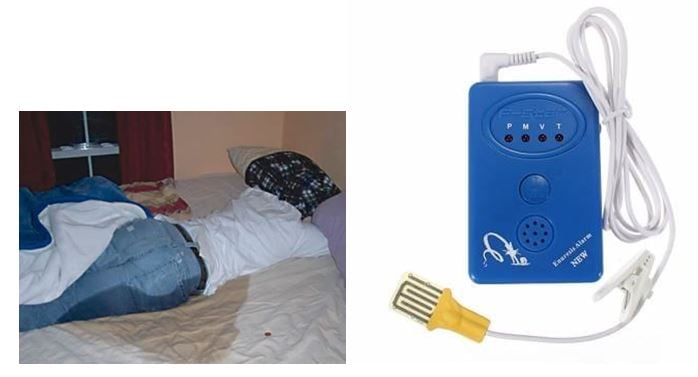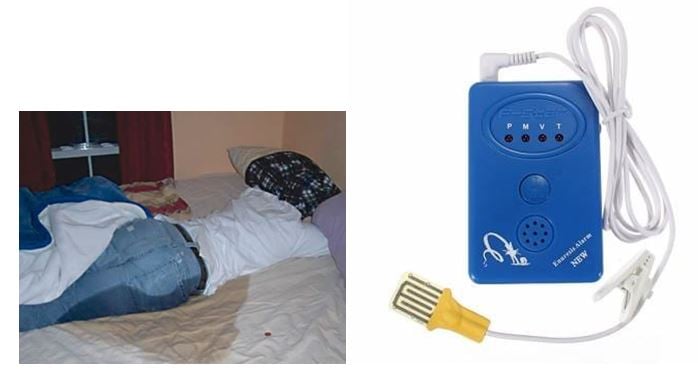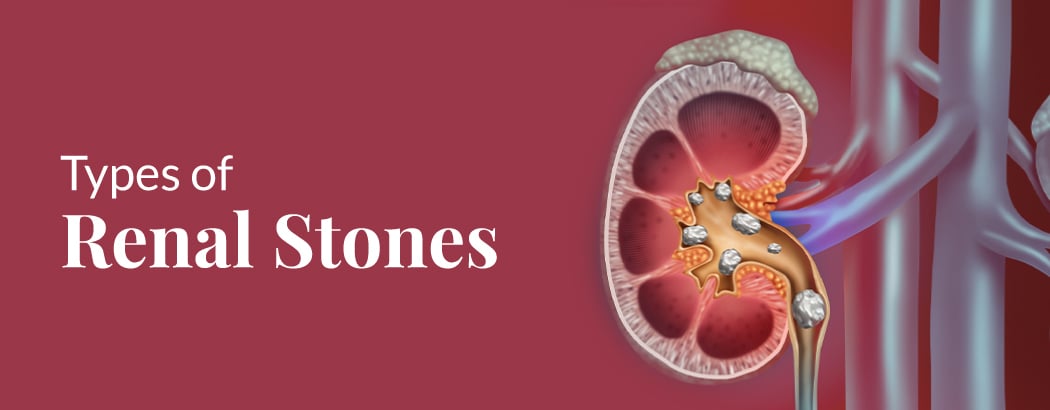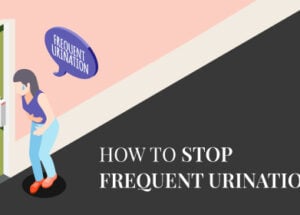Bedwetting
Bedwetting – also called nighttime incontinence or nocturnal enuresis – is passing urine in the night time in the bed while sleeping without realizing it.
The causes are different in adults and children.
Adult bedwetting causes
- Medications are also known to increase bedwetting in adults as hypnotics, insomnia medications, and psychiatric medications such as thioridazine, clozapine and risperidone.
- Diabetes
- Urinary tract stones
- Parkinsonism
- Stroke
- Prostate cancer
- Prostate enlargement
- Chronic retention with an overflow of urine
- Bladder cancer or obstructive sleep apnea.
Sometimes there are hormone abnormalities like decreased secretion of a hormone called Anti-diuretic hormone which causes excessive urine production in the night time.
Causes of bedwetting in Children?
All children are incontinent at birth and gradually retain control of the bladder as they grow. Most kids are fully toilet trained and can hold urine for sufficient periods of time by age 5. Generally, bed-wetting before age 7 is not a concern. At this age, your child may still be developing nighttime bladder control. If bedwetting continues beyond that age you will need to see an urologist or a pediatrician.
Generally, the causes can be distributed to three different reasons based on which the treatments are devised
- Deep sleep that the child is not able to realize that the bladder is full
- Excessive urine production from the kidneys due to deficiency of ADH hormone
- Sleep apnea
- Diabetes
- Overactive bladder in which there are associated day time symptoms also -small bladder
- Urinary infection
- chronic constipation
- Structural problems in urinary tract or neurological system
- Stress and anxiety
- Family history
- Attention-deficit/hyperactivity disorder (ADHD) are risk factors for bedwetting.
What is required for the diagnosis?
- Physical exam
- Discussion of symptoms, fluid intake, family history, bowel and bladder habits, and problems associated with bed-wetting
- Urine tests to check for signs of an infection or diabetes
- X-rays or other imaging tests of the kidneys or bladder to look at the structure of the urinary tract
- Other types of urinary tract tests or assessments, as needed
Treatment In children
It depends on the cause
General lifestyle measures
- Limit fluids in the evening
- Avoid beverages and foods with caffeine especially in the evening
- Encourage double voiding before bed
Double voiding is urinating at the beginning of the bedtime routine and then again just before falling asleep. Remind your child that it’s OK to use the toilet during the night if needed. Use small night lights, so your child can easily find the way between the bedroom and bathroom and they are not afraid to get up and pass urine in the night time. - Encourage regular toilet use throughout the day
During the day and evening, suggest that your child urinate every two hours or so, or at least often enough to avoid a feeling of urgency. - Prevent rashes due to urine leakage
Moisture alarms
These small, battery-operated devices connect to a moisture-sensitive pad on your child’s pajamas or bedding. When the pad senses wetness, the alarm goes off. It often takes one to three months to see any type of response and up to 16 weeks to achieve dry nights.
Medication
Slow nighttime urine production – The drug desmopressin (DDAVP) reduces urine production at night.
Calm the bladder – If your child has a small bladder, an anticholinergic drug such as oxybutynin may help reduce bladder contractions and increase bladder capacity, especially if wetting also occurs during the daytime also.

 FAQ
FAQ
What age is bedwetting a problem?
After the age of 7, bedwetting might be a problem. Get consulted with a doctor for better advise
What causes bed-wetting at age 12?
Diabetes or constipation may be the cause of bed-wetting at the age of 12
How can I stop bedwetting?
- Reduce drinking water before bed
- Go to the bathroom before getting into bed.
- Easy access to the toilet
- Appreciate child for not bedwetting
- Use absorbent pants while sleeping








